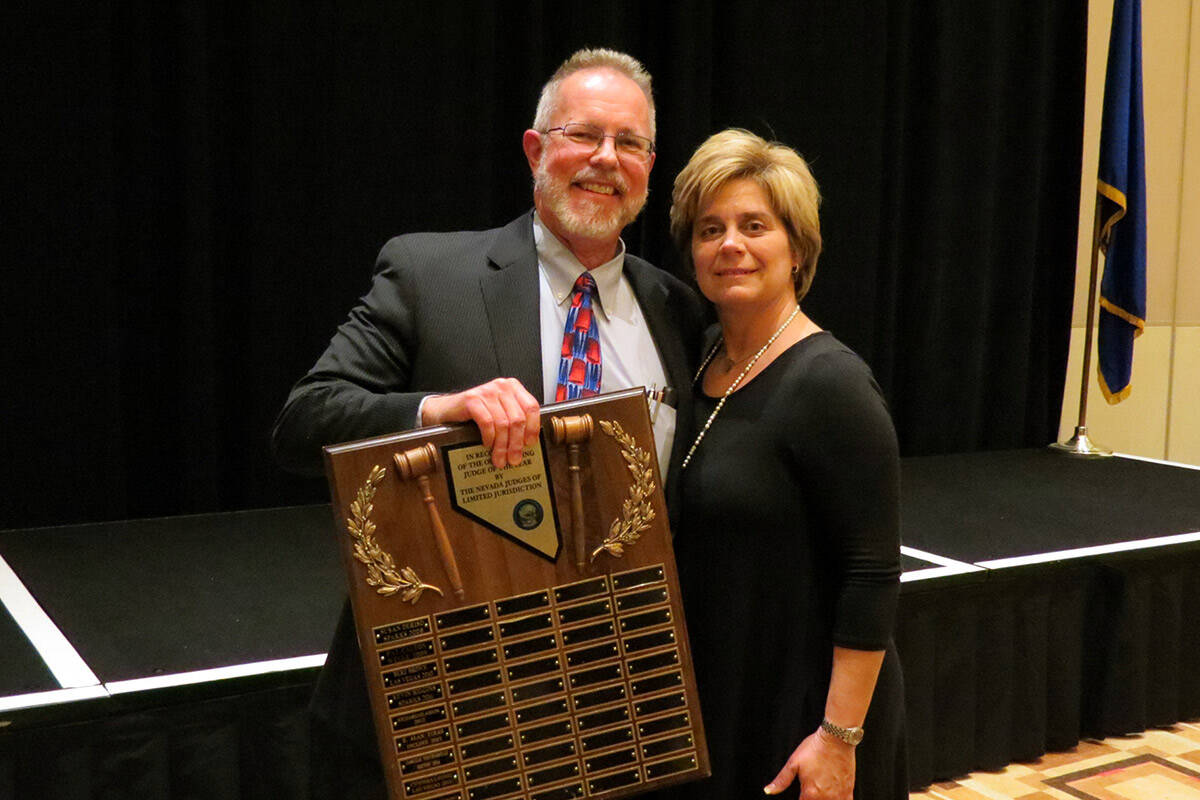HARDY: Breaking the Cycle program deals with problem of addiction
As a doctor for the past five decades, I have to say I’ve learned a lot about substance dependency.
In the 1970’s and beyond, people profiled dependency as a class or even a race issue. We as a society have learned that there are so many factors behind dependency and the actions of those suffering from it.
Probation or jail can be a short-term fix, but often, these individuals receive no treatment or counseling, and find themselves on the same destructive path. In 2014, Judge Victor Miller saw that this was a cycle that had to be broken. So, he started the Breaking the Cycle Recovery Court in Boulder City.
Judge Miller noticed that the same defendants would appear before his court repeatedly due to their struggles with alcohol and chemical addiction. He felt that rehabilitation would better serve the defendants as well as the community. The Breaking the Cycle Recovery Court gives those in recovery the tools they need to understand their struggles and find the path to sobriety. Judge Miller’s courtroom bench has a quote: “Show me your friends and I will show you your future.” That mantra is repeated throughout the program.
There are strict qualifiers on who can join the Breaking the Cycle program: High risk/high needs individuals, 18 years of age or older, habitual offender, unstable housing, a history of substance-related charges, and unemployed or underemployed. Candidates who plead or are found guilty may be sentenced by the court, with the option of serving jail time or having their sentence suspended on the condition that they complete the program.
Once in the program, participants are required to stay clean, avoid legal trouble, and follow rules and expectations of their treatment plan. They must attend weekly individual counseling and group counseling, as well as sober fellowship meetings, such as Alcoholics Anonymous, Narcotics Anonymous or Smart Recovery. They have a team of support to lean on in times of weakness: Judge Miller, the case manager, deputy city attorney, court-appointed or private attorney, court coordinator, marshal/alternative sentencing, a police department representative, treatment providers or counselors, certified peer support and many others.
The program psychologist meets the defendant prior to admission into the program to conduct an evaluation for alcohol or drug use, as well as a mental health assessment. Court marshals conduct random drug testing and ensure that participants are not maintaining relationships with individuals that are detrimental to their recovery.
The case manager or social worker helps the participants with their life skills outside of treatment/counseling, such as setting up bank accounts, managing budgets, finding housing and more. Certified peer support provides resources to help participants in furthering their education and assist them in finding jobs.
As with most recovery court programs, resources and funding are the main challenge. Participants must sometimes wait for in-patient treatment for up to a month and a half due to a shortage of beds in facilities. These facilities are mostly outside of the city and quite costly. The Sunrise Rotary has been a very integral part of the program, donating the seed money necessary to get the program started.
Rotary also donates time and gifts to the program regularly. Boulder City staff and City Council have been supportive in helping the program succeed.
Thank you, Judge Miller, and thank you to the staff of the Breaking the Cycle Recovery Court program.
Your positive, diversionary alternative to jail reduces detention expenses, reduces recidivism, and in the end, keeps our crime rate low, keeping us the “Safest City in Nevada!”
Joe Hardy is mayor of Boulder City. He previously served in the state Assembly and Senate.





